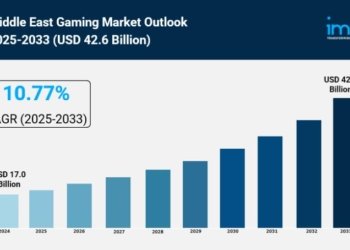
BlackRock’s Ethereum ETF Achieves Unprecedented Inflow Milestone
In a groundbreaking development for the cryptocurrency investment landscape, BlackRock’s Ethereum ETF has achieved record-breaking inflows, capturing the attention of both traditional investors and crypto enthusiasts around the globe. The move marks a significant milestone and underscores the burgeoning interest in digital assets within institutional investment circles.
The Rise of Ethereum ETFs
As the second-largest cryptocurrency by market capitalization, Ethereum has long stood in Bitcoin’s shadow. However, its unique capabilities and potential applications have increasingly attracted institutional interest. An Ethereum ETF, specifically, provides a regulated and accessible way for investors to gain exposure to this digital asset without the need for direct management of the cryptocurrency itself.
Understanding Ethereum’s Appeal
Ethereum’s allure lies in its robust versatility beyond just being a digital currency. Its platform supports smart contracts and decentralized applications (dApps), providing the backbone for innovations such as decentralized finance (DeFi) and non-fungible tokens (NFTs). As the Ethereum network continues to evolve with the rollout of Ethereum 2.0, its shift to a proof-of-stake consensus model could enhance scalability and sustainability, further boosting its appeal.
The Role of Institutional Investment
The introduction of ETFs for cryptocurrencies like Ethereum is a pivotal step in bridging traditional finance with emerging digital markets. Institutional investors often seek regulated and transparent investment vehicles, making ETFs an optimal choice. With BlackRock’s entrance into Ethereum-based ETFs, the landscape of crypto investments is expanding, potentially leading to further legitimacy and acceptance of digital assets.
BlackRock’s Pioneering Move
BlackRock, a global leader in investment management, has long been at the forefront of financial innovation. Its dive into the crypto market is a testament to the growing confidence in digital assets. The company’s Ethereum ETF stands as one of the most talked-about products in the financial world today.
Record Inflows: A Testament to Growing Interest
The Ethereum ETF’s remarkable inflows signal robust confidence and demand. Here are some potential reasons driving these inflows:
- Diversification: Investors are continually looking for ways to diversify their portfolios, and Ethereum’s performance makes it an attractive option.
- Innovation Potential: With its capability to host a wide array of applications, Ethereum’s potential for innovation enhances its allure.
- Market Resilience: Despite market volatility, Ethereum has shown strong resilience and utility, adding a layer of security for risk-averse investors.
What This Means for the Future
The success of BlackRock’s Ethereum ETF could initiate a chain reaction, prompting other major financial players to introduce similar products. This influx of institutional backing might accelerate mainstream adoption of cryptocurrencies, fostering a more sophisticated and secure investment ecosystem.
The Impact on Ethereum and Broader Crypto Markets
The ripple effect of BlackRock’s Ethereum ETF is not limited to the company alone. The broader crypto markets may experience several transformative impacts, leading to more profound implications for the digital asset space.
Strengthening Ethereum’s Position
- Increased Credibility: Institutional involvement often translates to greater trust among retail and conservative investors.
- Higher Liquidity: With more inflows, Ethereum’s trading volumes and liquidity may experience significant boosts, stabilizing prices.
- Adoption Catalyst: As institutions adopt Ethereum, ancillary services and tools could evolve, driving user adoption and broader ecosystem development.
Broader Cryptocurrency Ecosystem Benefits
The Ethereum ETF highlights the successes that are possible when traditional finance and digital assets converge. This symbiosis may lead to:
- Enhanced Regulatory Clarity: As more ETFs enter the market, regulatory frameworks may adapt, lending clarity and reducing investment risks.
- Increased Hedging Options: With a rise in diversified financial products, investors can better hedge against cryptocurrency volatility.
- Promotion of Digital Literacy: As traditional investors turn to ETFs, the broader community might show increased interest in understanding blockchain technologies.
The Road Ahead: Challenges and Opportunities
The journey for Ethereum and other digital assets is only beginning. While the launch of such ETFs presents new opportunities, it also poses challenges that stakeholders must navigate.
Challenges Facing Ethereum ETFs
- Regulatory Hurdles: As the regulatory landscape evolves, maintaining compliance across jurisdictions will be imperative.
- Market Volatility: Cryptocurrencies are notoriously volatile, and mitigating these risks will be crucial for sustainable growth.
- Technological Advancements: Keeping pace with rapid technological changes requires continual innovation and adaptation.
Unfolding Opportunities
Despite challenges, the future of Ethereum and similar digital assets looks promising. Some key opportunities include:
- Expanding Institutional Participation: Continued inflows may encourage broader institutional engagement across various cryptocurrency segments.
- Technological Integration: Ethereum’s applications could integrate more comprehensively with conventional financial systems, potentially revolutionizing traditional financial operations.
- Global Financial Inclusion: By lowering barriers to entry, Ethereum and other digital assets may play a pivotal role in enhancing global financial inclusion.
Conclusion
BlackRock’s Ethereum ETF achieving record inflows is a historic moment for the cryptocurrency space. It underscores a shift in perception and acceptance of digital assets within institutional realms. As we move forward, the true potential of Ethereum, fostered by trailblazers like BlackRock, is poised to redefine global finance, offering innovative solutions that transcend conventional investment paradigms.
“`











